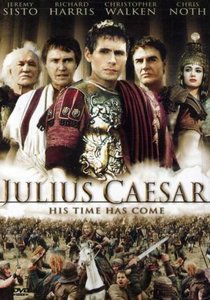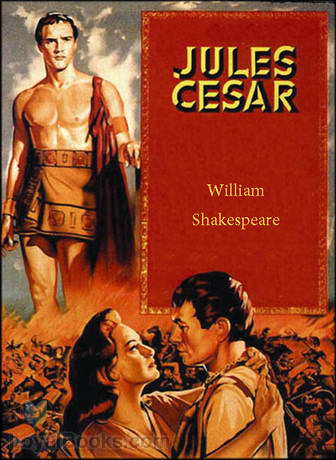
Each word has the same emphasis as the last, and they march out of the screen at us without regard for phrases, sentences or emotional content. He stares vacantly into the camera and recites Shakespeare's words as if he'd memorized them seconds before, or maybe was reading from idiot cards. There's hardly any way to describe how Jason Robards brings Julius Caesar to its knees, but let me try. Ĭritic Roger Ebert gives it only one star. Now Julius Caesar looks left out all night. However, Diana Rigg and Richard Chamberlain, as Portia and Octavius Caesar, are briefly excellent in their quicksliver precision and feeling. In Sir John's former Cassius slot, Johnson looks anything but "lean and hungry," with a bearded sneer, contrasting Robert Vaughn's bland, eye-rolling Casca. For all his professionalism, Gielgud's Caesar is just an old shrewdie who yields to his ego. As the center of the whole thing, Robards is incredibly dull and wooden as Brutus, the "noblest Roman of them all." Heston supplies laconic bite and delivers a good, ferocious funeral oration.

#Julius caesar movie movie
The new movie moves sluggishly, as directed by Stuart Burge. The movie did have a raw, shoestring vigor and a bit more. Then there was an even earlier Julius Caesar from Chicago, of all places, with a newcomer named Charlton Heston as Antony, which he repeats here. And the tormented soul of the real hero, Brutus ( James Mason), was sufficiently and touchingly bared. That solid, intelligent treatment may have lacked majesty but it did have two fire-and-ice performances by John Gielgud as Cassius and Marlon Brando as Mark Antony.

Dramaturgically, the blueprint adheres to the Hollywood version back in 1953.

It's Shakespeare all right, at least in dialogue. In this third go-round, Willie and Julius, both, really get the business. Made in England and Spain and in color, with a perfectly viable cast headed by Jason Robards and Charlton Heston, the new picture is generally as flat and juiceless as a dead haddock. "Ye gods! Must I endure all this?" understandably bellows Cassius ( Richard Johnson) in the last lap of the third filming of William Shakespeare's Julius Caesar, which opened yesterday at the Kips Bay Theater. The reviews for this version upon its theatrical release were mostly negative, with Robards especially being criticized for his wooden performance as Brutus. Julius Caesar had its world premiere in Tokyo on 20 February 1970 and was released in the UK on 4 June 1970. Max Adrian was cast in a featured role, but dropped out before filming. Peter Eyre is credited as playing Cinna the poet, but his role was cut from the final film. He would do so yet again, in a 1972 film version of Shakespeare's Antony and Cleopatra, which Heston also directed. Mankiewicz, and Heston also played Mark Antony in a low-budget 1950 version.

John Gielgud and Charlton Heston had both appeared in previous film adaptations of Shakespeare's play Gielgud played Cassius in the 1953 film directed by Joseph L. Orson Welles was the first choice to portray Brutus, but was passed over for Jason Robards, who had considerable difficulties during production: frequently missing rehearsals, refusing to appear on horseback, and holding up the proceedings due to illness. The battle sequences were filmed on-location in Manzanares el Real, Spain. The film was shot primarily at MGM-British Studios and Pinewood Studios in England. La Pedriza in Madrid, one of the film's locations.


 0 kommentar(er)
0 kommentar(er)
